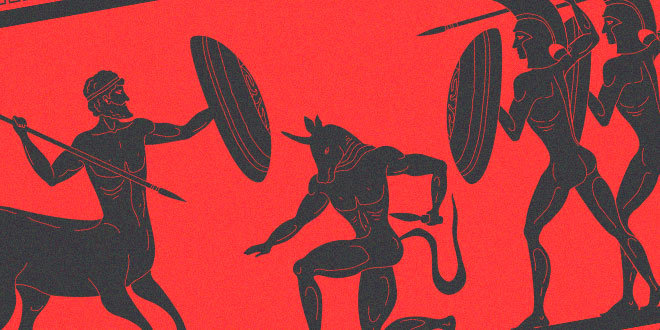A myth is a widely held but false belief. A vibrator is a motorised device used for sexual stimulation. Put them together, and you have a formula for trouble. Quite a lot of people believe some very strange things about sex toys, and when lots of people believe strange things, it rarely ends well. So here are five common vibrator myths, debunked. FOREVER.

- Vibrators are Embarrassing to Buy
Maybe they used to be, back in the day, when you had to physically go into a neon-lit store in a darkened alley somewhere in the wrong end of town. But it’s just not like that anymore. Sex toy stores are now generally cool places to be, well-lit, well-designed, and with knowledgeable and friendly store staff that often perform the role of an ad-hoc relationship therapist as well as a salesperson. Hell, you can buy sex toys in Walmart, for crying out loud.
If buying in person is still a little nerve-wracking, then there’s the internet. Now you can browse, choose, buy, receive, and use a vibrator without ever looking another person in the eye. There’s never been a better time. So, consider this myth thoroughly busted.
- Cleopatra Invented the Vibrator
This myth simply won’t go away, despite the fact that everything about it is dumb and stupid and wrong. I’ve heard relatively serious sexual authorities reference this myth without addressing the obvious silliness of it, so let’s put it to bed once and for all: Cleopatra did not invent the vibrator.
The story is that she used an improvised vibrator consisting of either an empty gourd or a papyrus tube filled with live bees to satisfy her monumental lust. The problem is that there is no mention anywhere, ever, in any source, that refers to this, before Brenda Love’s 1992 book The Encyclopaedia Of Unusual Sex Practices. What’s more, Cleopatra’s sexual desire is almost certainly disgracefully over-exaggerated. This myth is a non-starter.
- Vibrators Desensitise You
There seems to be the impression when it comes to sex that too much of it is physically harmful, and that sex and masturbation can have a kind of erosive effect on your sexual sensitivity. In short, the myth states that using a vibrator makes you less sensitive to “real” sex, however you define that.
There is, and I feel like I can’t be clear enough on this point, NO evidence of any kind that this is true. We do not have a finite amount of sensation, that can be used up by using a vibrator. Sure, using a vibrator can help you get accustomed to pleasurable sensations, but there’s never going to be a point at which you begin to ‘wear out’ your sensitivity. You’re not killing nerve endings by stimulating them.
- Sex Toys Are A Replacement For Sex
The assumption that owning a sex toy means you’re sexually unfulfilled is such a strange one. The truth, in every case I’ve ever experienced, is exactly the opposite: sex toy ownership is a statement of sexual empowerment, not disenfranchisement.
Sex toys are an addition to sex, not a substitute for it. Couples who own sex toys have better sex. That’s a fact. It’s a fact that single people who own sex toys also see themselves as more fulfilled than, say, single people who don’t own sex toys. And besides, most of us, at least occasionally, would prefer to masturbate than have sex. If we’re being really honest about it.
- Sex Toys Are A Commentary On Male Sexual Prowess.
Oh get off your own dick, Chad. It’s not all about you. Of all sex toy myths, this is the one that makes me the angriest: the assumption that a woman’s sex toy in a heterosexual relationship is some kind of comment about her partner’s ability to please her.
It’s a really chauvinistic attitude, because, once again, the truth is exactly the opposite. A woman’s sex toy has nothing to do with her partner, and the fact that we even mythologise it as such is a testament to our culture’s ability to make everything about men even when it’s got nothing to do with them. But what really matters is the science, and all the research I’ve ever read indicate that couples who own sex toys have better sex.
Sex toys are not a commentary on male prowess. This myth is busted, and the sooner we get rid of this one, the better.
